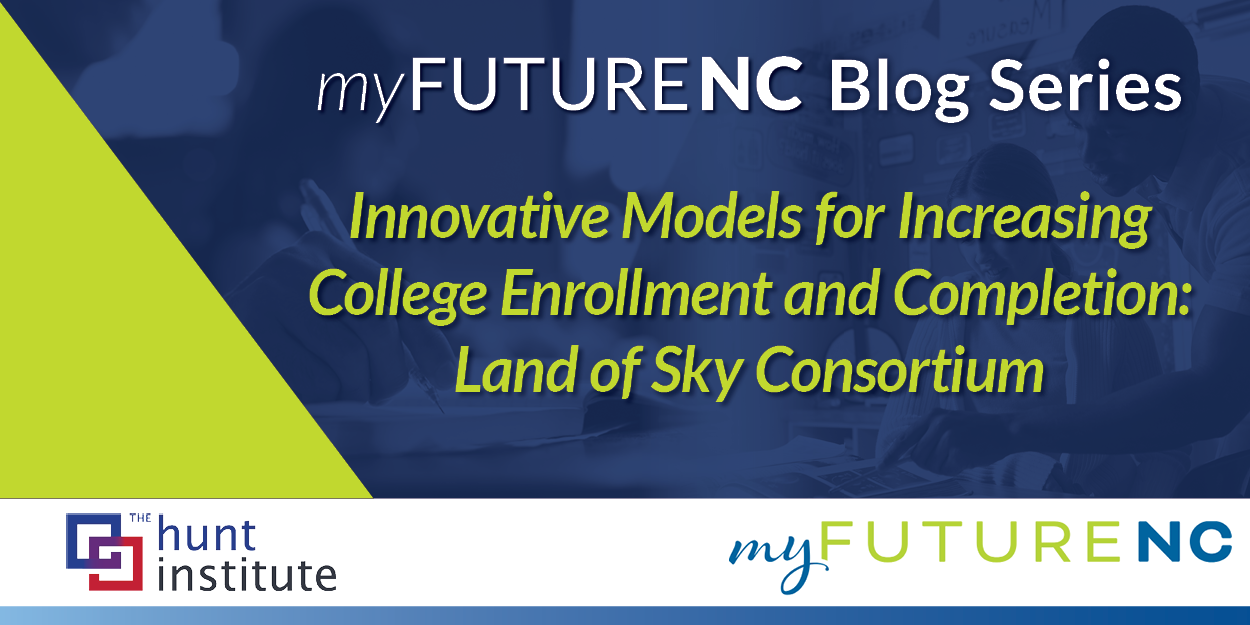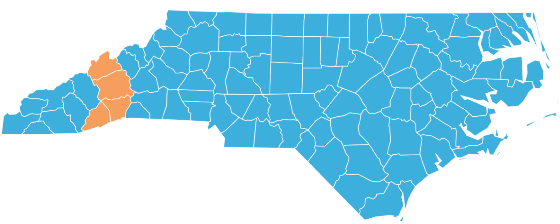

April 22, 2020

By Jack Cecil, President, Biltmore Farms and myFutureNC Board of Directors; Michael Dempsey, Dean and Director, Lenoir-Rhyne University Asheville; Joseph Fox, Fox Management Consulting Enterprises; Laura Leatherwood, President, Blue Ridge Community College; Gene Loflin, Associate Vice President for Instruction, A-B Tech Community College; Nathan Ramsey, Executive Director, Land of Sky Regional Council; and Bill Sederburg, retired Chancellor, UNC Wilmington
Over a year after the announcement of myFutureNC’s postsecondary attainment goal, it has become clear that increasing postsecondary attainment in North Carolina is a complex endeavor that will require significant buy-in and support from local community stakeholders. With companies in our region expecting to add 12,700 to 26,700 new jobs over the next three years, there is a newfound sense of urgency to create a sustainable pipeline of a trained and educated workforce to meet the needs of our growing industries. Recognizing the need to maximize the collective impact in our region, the Land of Sky Regional Council formed an Educational Attainment and Workforce Collaborative to bring together cross-sector partners to increase attainment in Henderson, Madison, Buncombe, and Transylvania counties.

Caption: The counties of the Land of Sky Region are highlighted in orange.
Many community stakeholders across government, business, and education tend to operate in silos, limiting resource and knowledge sharing and stifling innovation. To break these habits and nurture community partnerships, the Land of Sky Regional Council launched an attainment pilot program by hosting a series of stakeholder working groups. These groups, consisting of cross-sector experts and practitioners, will work to deliver recommendations for improving current programs and develop partnerships to design new attainment models that meet our current and future workforce needs.
By bringing together business leaders, workforce development boards, economic developers, and representatives from across the education continuum in the four counties, our working groups will be better able to assess policy, share best practices, identify barriers, and develop innovative approaches to workforce development in our region.
The most important partnerships we build must be between the business and education sectors. In terms of meeting workforce needs, businesses are often focused on short-term employment goals, while educators are focused on long-term pathways that lead to employable credentials. When companies have an immediate need for talent, it is easy for them to lose sight of the long-term benefit of engaging in thoughtful workforce development. At the same time, educators must be prepared to offer short-term solutions that quickly serve business’s needs. To build a truly competitive workforce, the Land of Sky Collaborative is striving to help local business and educational leaders understand both short and long-term needs, and leverage the numerous approaches to talent development including apprenticeships, internships, and relationship-building with K-12 schools and institutions of higher education.
The Land of Sky region’s two thriving community colleges, two public universities, and five private colleges/universities are ideal partners for business. These institutions of higher education are piloting successful partnerships that offer employers the opportunity to develop training and credentialing programs that are targeted to industry needs, creating a future pipeline for recruiting and training a quality workforce.
Education and workforce data are an integral part of fostering strategic community partnerships. In 2019 and in pre-COVID-19 2020, the Land of Sky counties had the lowest unemployment rates in North Carolina, experiencing positive job growth across nearly every sector over the past year. However, disaggregating this data reveals important wage and skill gaps that we must continue to work to overcome. myFutureNC’s recent release of county data profiles has been a helpful tool for driving our conversations around postsecondary attainment, and allows our stakeholders to design targeted programs that deliberately approach our region’s biggest opportunities for growth.
The Land of Sky Collaborative has been identifying and reaching out to key community stakeholders, educators, employers, local governments, economic developers, chambers of commerce, workforce development boards, and community advocates. Members from each stakeholder group have been sharing “best practices” that reinforce educational attainment-to-gainful employment goals. The Collaborative’s lead coordinator, Dr. Joseph Fox, has been tasked with envisioning and implementing a collective effort that identifies common goals/progress, and establishes local agendas that create a long-term, sustainable attainment and employment model.
Information provided by stakeholders within the Land of Sky counties is indicating that initiatives and strategies will focus on the following topics:
As our work continues, we hope to amplify lessons learned so our model can serve as a blueprint for other regions hoping to increase postsecondary attainment. Our plan is to establish specific goals, objectives, strategies, and metrics, and to communicate our findings and recommendations to all educational and workforce/business stakeholders in the four-county region. Looking into the future, we believe there is an opportunity to reposition our region’s workforce, making it even more competitive in the post-COVID economy. Breaking down our “siloed” systems and fostering strategic community partnerships are essential to achieving myFutureNC’s ambitious goal, and we are excited to lead the way for our state.
Authors

Land of Sky Consortium